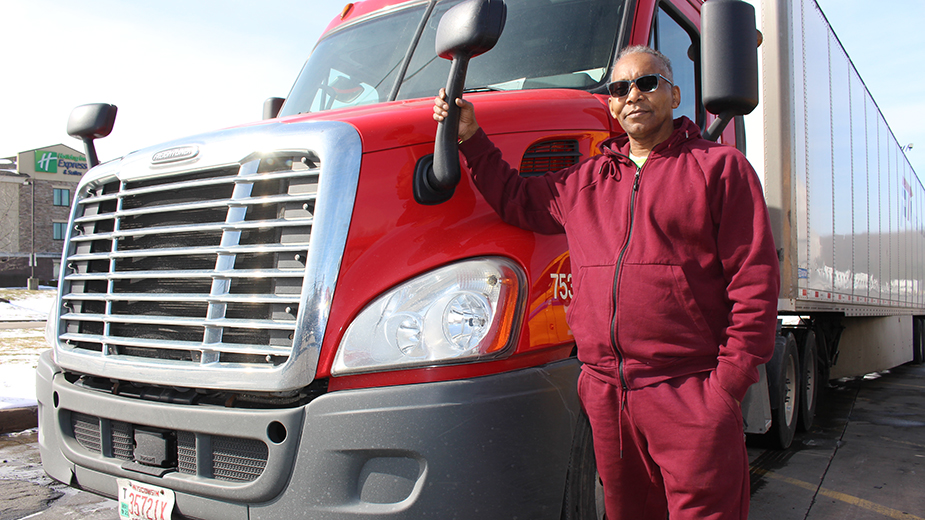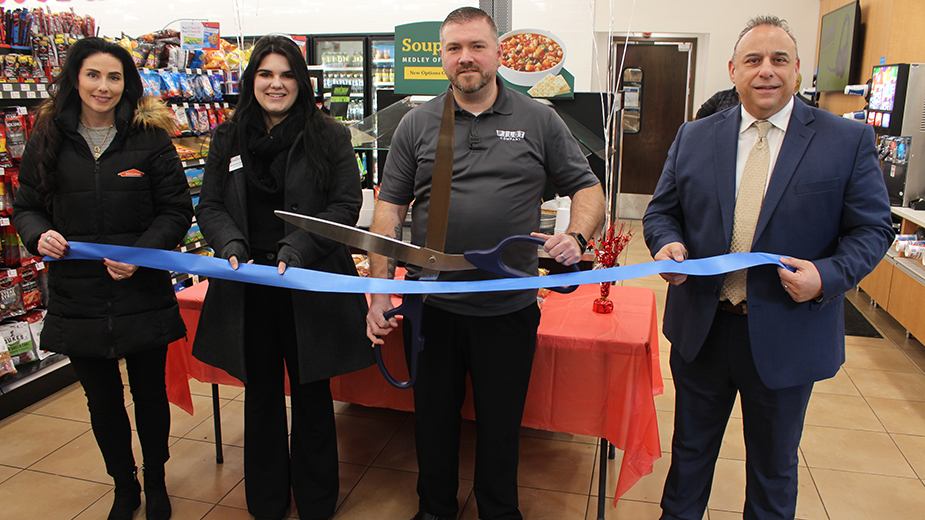Drivers Like Truck Stop Renovations; Don’t Like Fuel Prices
AUSTINTOWN, Ohio – Pilot Travel Center celebrated renovations and upgrades at the state Route 46 center near Interstate 80 Monday. But truckers and motorists stopping by to fill up their vehicles were in no mood for celebration.
The Youngstown/Warren Regional Chamber hosted a ribbon cutting at the travel center, where improvements included renovations to the building itself and an expanded kitchen to allow greater menu offerings including chicken wings, pizzas and salads.
“We’ve done quite a bit as far as remodeling the building itself,” said Grant Becker, general manager of Pilot’s North Lima travel center, who was on hand because the Austintown GM was unavailable.
As part of the event, Pilot made a $10,000 donation to the Austintown school district to support science and technology initiatives.
Visitors are “very happy” with the changes,” said Becker.
But on this day, nobody at the truck stop was happy about the price of fuel. Regular unleaded was $4.099 per gallon and diesel was $5.359 per gallon.
Many truckers said they didn’t have time to be interviewed. Those who did were drivers for specific companies and not owner-operators. So their employers were footing the fuel bills, not them.
Rick Wolf of Toronto, a driver for Jaro Transportation Services, said he used to have his own trucks but gave them up when diesel hit $4 per gallon.
“Now what is it, $5.35? That’s crazy,” he said. He predicted that would end up increasing rates on freight. “So that’s going to drive everything up.”
John Culco of New Jersey is another former owner-operator now working for a company, Vintage Food Corp.
“When I used to be the owner-operator, I felt that pain,” he said.
There is pressure on drivers to be efficient because of the higher fuel costs, according to Culco.
Alvin Cunningham of Columbus, a company driver for Paper Transport Inc. in Green Bay, Wis., told how gas prices are affecting his family – “taking food out of my children’s mouths, taking money out of my whole household in every way.”
To combat the impact, Cunningham said he and his wife buy items they need wholesale at places like Costco and Sam’s Club, and plan shopping trips to be as efficient as possible.
“When we want to go out or go someplace, we make sure everybody in the household has their agenda lined up so that we can all do it at one time and come back home,” he said.
Rising fuel prices led Eddie Irizarry of Puerto Rico, a trucker for Zidian Logistics Services Inc. in Boardman, to request an increase in the limit on his company credit card. The limit — $1,000 — wasn’t high enough to cover the cost of fuel and other necessities.

Irizarry said he had been looking forward to one day owning his own company. “When I see the price going up like this, it makes me feel like second guessing,” he said.
Filling up his pickup truck with diesel, sales representative Kyle Hallas of Salem, said his truck gets 18 miles per gallon, and the price of fuel has him thinking about getting a more economical vehicle.
“It might pay for itself,” he said.
So far, the increase in fuel prices isn’t affecting sales of other items at Pilot stations, said Becker, the Pilot manager. Truckers are responding to the increased costs by finding more work, he noted.
“They’re seeking different jobs and stuff like that,” he said. “They just don’t know how long they can incur the costs.”
As to the question of whether they should absorb economic pain to support Ukraine, the truck drivers were sympathetic to the plight of the people there. But they had their own concerns.
“I’ve got to live, too,” Cunningham said.
“People are hurting in all parts of the world. Africa is a big country where they’re hurting,” he continued. While people are concerned about going over to Ukraine and bringing refugees back to the United States, people are being beaten back at the Mexican border.
Irizarry said his parents taught him to help people when he could. “That way we can make the world better,” he said.
Others saw little connection between the high gas prices and the situation in Ukraine.
Wolf acknowledged the United States doesn’t buy that much oil from Russia, and said the country became energy independent under President Trump. “I don’t understand why the problem in Ukraine is affecting prices,” he said.
“I don’t know if it has anything to do with Ukraine,” Hallas said skeptically. He pointed to how lumber prices shot up during the COVID-19 pandemic, and predicted that they would not return to pre-pandemic levels.
“I think there’s a lot of inflation in general,” he said. “And I think there’s a lot more greed out there, and everybody’s just using [the invasion] as an excuse.”
Copyright 2024 The Business Journal, Youngstown, Ohio.



